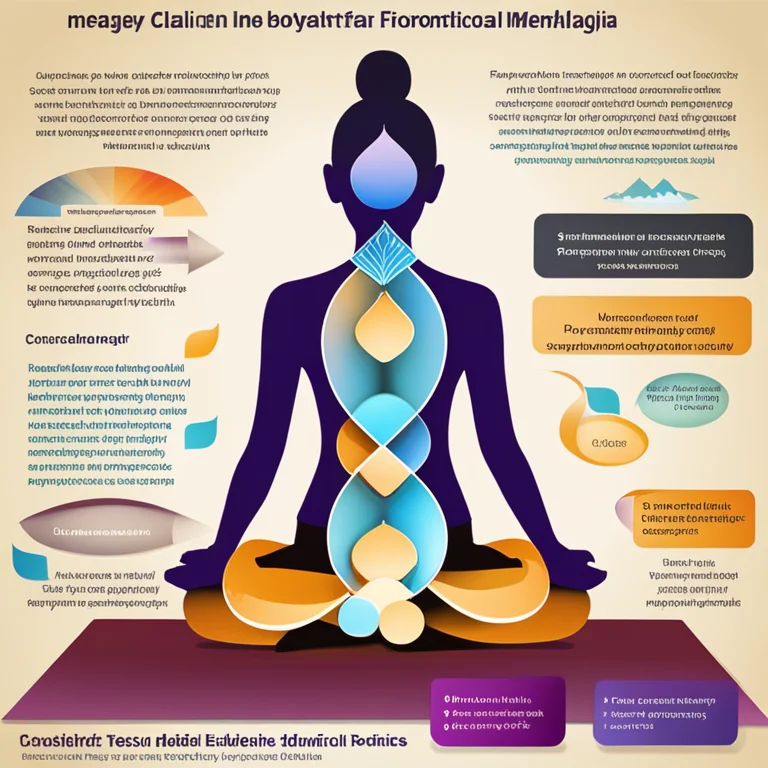
Mindfulness Meditation as Therapy for Fibromyalgia
Explore the potential of mindfulness meditation as a complementary approach to alleviating fibromyalgia symptoms, with a focus on clinical relevance and underlying mechanisms.
article by Hina Kurosawa
Introduction to Mindfulness for Fibromyalgia
Fibromyalgia, characterized by chronic pain and fatigue, presents a complex challenge to sufferers seeking relief. While pharmacological solutions are common, mindfulness meditation has emerged as a promising adjunct therapy. It offers not just symptomatic respite but also fosters a holistic well-being. With growing interest in non-pharmacological interventions, the incorporation of mindfulness into fibromyalgia management has gained clinical traction, highlighting the importance of comprehensive patient care.

Clinical Evidence Supporting Meditation
Recent clinical trials have underscored the benefits of mindfulness meditation for fibromyalgia patients. These studies show reductions in pain perception, improved sleep quality, and decreased psychological distress. Mindfulness techniques, such as deep breathing and present-moment focus, contribute to these outcomes by modulating stress responses, which are often exacerbated in fibromyalgia. This evidence positions mindfulness meditation as a valuable component of multimodal fibromyalgia management strategies.

Mechanisms Behind the Relief
The mechanisms by which mindfulness meditation affects fibromyalgia symptoms are multifaceted. Neuroimaging studies reveal that regular practice can alter brain structures associated with pain processing. Additionally, mindfulness can lower inflammatory markers and enhance pain modulation via the central nervous system. These findings suggest that meditation does more than just manage symptoms; it might also engage with the underlying pathology of fibromyalgia.

Implementing Mindfulness Practices
Integrating mindfulness into daily routines can be uniquely tailored to individual needs. Simple practices, like Mindfulness-Based Stress Reduction (MBSR), can be taught in group or individual settings. Consistency and patience are key, as the benefits of mindfulness build over time. Healthcare providers specializing in fibromyalgia should be equipped to guide patients through initial meditation practices, fostering autonomy in symptom management.

The Role of Digital Health in Meditation
In the era of digital health, online platforms and mobile applications are increasingly used to deliver mindfulness meditation programs. These tools provide accessible options for fibromyalgia patients to engage in self-care. Virtual mindfulness sessions and interactive meditative exercises are examples of how technology can support the practice, allowing patients to maintain a regular regimen despite the limitations of their condition.
Challenges and Future Directions
While meditation offers clear benefits, it is not a panacea. Challenges such as patient adherence, varying response rates, and the need for skilled mindfulness practitioners remain. Future research should aim at optimizing mindfulness interventions for fibromyalgia, personalizing the practices, and exploring long-term outcomes. As the medical community continues to embrace holistic approaches, mindfulness meditation is poised to become a mainstay in the fibromyalgia therapeutic landscape.
Published: 1/9/2024
Modified: 1/9/2024
More predictions
Come back here soon to learn more about yourself and your future


The Fusion of Meditation and Yoga for Inner Peace
Discover how the synergy of meditation and yoga can enhance mindfulness and bring tranquility to your life in today's fast-paced world.


The Essential Guide to Choosing Your Meditation Chair
Discover the key aspects to consider when selecting the perfect meditation chair for enhanced comfort and focus during your mindful practices.


Calming Depths: The Art of Underwater Meditation
Dive into the calming depths of underwater meditation. Learn how to harmonize mind, body, and spirit surrounded by the tranquility of water in this insightful guide.